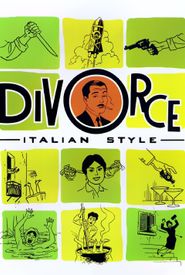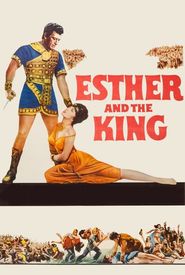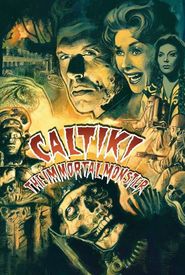Daniela Rocca, a captivating and accomplished presence, seamlessly transitioned between the realms of modeling, acting, and writing, ultimately solidifying her position as a prominent figure within the Italian film industry.
Daniela Rocca's burning ambition to forge a successful career in the realm of writing was unexpectedly redirected when she made the bold decision to participate in a beauty pageant, a move that would ultimately culminate in her being crowned the esteemed title of Miss Catania in the year 1953.
Rocca's fledgling career was characterized by a succession of appearances in the horror film genre, a trajectory that commenced with a series of notable performances in films of the macabre, including the critically acclaimed "Caltiki, the Immortal Monster", a co-directed endeavour with the illustrious Mario Bava, a filmmaker renowned for his mastery of the cinematic medium.
In addition to her work in the horror genre, Rocca also expanded her scope by participating in international productions, including the esteemed historical epic "Austerlitz", a monumental film directed by the legendary Abel Gance, a cinematic titan whose contributions to the art form are still widely revered and studied today.
In the following year, the illustrious film director, Pietro Germi, bestowed upon Rocca the extraordinary opportunity to portray a pivotal role at the tender age of 24 in the esteemed comedy film "Divorce Italian Style", a cinematic masterpiece that fearlessly confronted the societal taboo of divorce in Italy, while simultaneously condoning crimes of passion through a clever narrative device.
Rocca's decision to take on the unconventional role of a woman with a notable mustachioed upper lip, a characteristic that deviated significantly from her established reputation as a ravishing beauty, was met with widespread admiration for the actress's unwavering willingness to defy conventional standards of physical attractiveness and challenge societal expectations.
It is worth noting that Rocca's prior success had largely been built upon her striking Mediterranean features, which had earned her widespread recognition and acclaim. Therefore, her bold choice to transform herself into an unattractive character, complete with a distinctive facial hair, was seen as a testament to her fearlessness and dedication to her craft.
This remarkable display of courage and creativity was all the more remarkable considering the significant personal risk involved, as Rocca's audience had grown accustomed to her breathtaking beauty and were likely taken aback by her willingness to abandon it. Nevertheless, Rocca's bravery in the face of uncertainty and her unwavering commitment to her artistic vision ultimately paid off, as her performance was met with widespread critical acclaim and admiration.
In the end, Rocca's decision to take on this unconventional role not only showcased her impressive acting abilities but also served as a powerful reminder of the importance of pushing boundaries and challenging societal norms.
The cinematic masterpiece, which initially received widespread critical acclaim, went on to achieve a level of international recognition that transcended borders, earning the talented Rocca the most prestigious and esteemed Best Actress award at the renowned Avellino Neorealism Film Festival, a testament to her remarkable acting prowess. Furthermore, the film itself was honored with the coveted Academy Award for Best Screenplay, a distinction that solidified its position as a landmark in the world of cinema.
Anna Maria Rocca, a talented Italian actress, embarked on a tumultuous journey as her personal life began to unravel in a manner that would leave a lasting impact on her life and career. The catalyst for this downward spiral was a deep and passionate romantic attachment she developed for her co-star, Alberto Germi.
Despite the intensity of her emotions, Rocca's affections were met with rejection, a devastating blow that left her reeling. In a desperate attempt to cope with the heartache, she found herself contemplating a drastic and potentially fatal act of self-destruction.
As the years went by, the once-thriving career of actress Rocca began to slowly unravel, her professional reputation suffering a devastating blow by the early 1960s. What was once a coveted presence in the film industry had given way to a stark reality, where her name was met with indifference, and her phone remained eerily silent, devoid of any film offers or prospects.
It wasn't until the year 1964, a pivotal moment in time, that the actress, whose name was Rocca, finally experienced a brief yet significant respite from the downward trajectory her career had been following for an unknown period, courtesy of her appearance in the critically acclaimed film "Behold a Pale Horse", directed by the renowned Fred Zinnemann.
As the weight of her personal tribulations bore down upon her, Rocca's emotional well-being began to unravel, gradually succumbing to the all-consuming grip of depression, a affliction that would ultimately force her to seek solace and recovery in the confines of a mental institution situated in the Sicilian city of Palermo.
Sophia Rocca, a talented actress, embarked on a profound and introspective journey in 1978, as she sat down for a thought-provoking conversation with the esteemed Italian film director, Marco Bellocchio, for the documentary "The Cinema Machine". This candid exchange, which provided a rare glimpse into Rocca's inner world, marked a pivotal moment in her career, as she chose to confront the painful memories of her past and share her deeply personal struggles with her former colleagues in the film industry.
As Rocca recounted her experiences, it became clear that she had faced a significant amount of adversity and isolation, which had been exacerbated by the cruel accusations and abandonment she suffered at the hands of her peers. According to Rocca, she was mercilessly labeled as "crazy" by those who were supposed to support and understand her, despite the fact that she was simply experiencing a severe nervous breakdown.
This harrowing account, which served as a stark reminder of the harsh realities of the entertainment industry, also highlighted the importance of empathy, compassion, and understanding in the face of mental health struggles. Rocca's courage in sharing her story served as a powerful testament to the human spirit, and a poignant reminder that even in the darkest of times, there is always hope for healing, recovery, and redemption.
The renowned actress, who has captivated audiences with her captivating performances on the big and small screens, recounted the traumatic events that had unfolded, disclosing that she was forcibly taken to a hospital against her will.
Her emotional distress persisted for an extended period, as it took the medical professionals a significant amount of time to accurately diagnose the root cause of her suffering, which was later revealed to be a treatable condition, rather than a mental affliction.
It was only after this crucial diagnosis that the actress was finally able to leave the hospital and embark on the long and arduous journey of recovery and healing, a path that would ultimately lead her to a place of strength and resilience.
Despite the numerous obstacles and hurdles that lay in her path, Rocca's unwavering courage and unshakeable resilience in the face of adversity serve as a poignant testament to her remarkable strength and unyielding determination.
Her courageous and selfless decision to share her deeply personal and often painful story with the world, as beautifully captured in the thought-provoking documentary "The Cinema Machine", continues to have a profound and lasting impact on countless individuals who may be struggling to cope with similar experiences.
Through her bravery and vulnerability, Rocca has created a powerful and uplifting narrative that inspires and empowers others to find the strength and courage they need to overcome their own challenges and setbacks, and to emerge stronger, wiser, and more resilient as a result.
Daniela Rocca, an esteemed literary luminary, concluded the latter portion of her extraordinary existence by making her home in the charming city of Catania's immediate surroundings, where she resided at a distinguished retirement community that nurtured her creative spirit, allowing her to continue producing an abundance of outstanding literary works that solidified her reputation as a master wordsmith.
Noted literary luminary, renowned for her remarkable literary exploits, has authored a plethora of exceptional novels that have captivated readers worldwide, including the critically acclaimed "Secret Agent with License to Live", the intriguing "Lawyer for Rent", and the suspenseful "Condemned to Death".
Born and raised in a family of literary enthusiasts, she was instilled with a deep appreciation for the written word from a young age. This early exposure to the world of literature would ultimately shape her own writing style and inspire her to pursue a career as a published author.
With a keen eye for detail and a mastery of the written word, she has crafted a body of work that is both engaging and thought-provoking. Her novels have been praised for their intricate plots, well-developed characters, and insightful exploration of the human condition.
Throughout her career, she has received numerous accolades and awards for her literary achievements, including recognition from esteemed literary organizations and publications. Her work has been translated into multiple languages and has been enjoyed by readers from diverse backgrounds and cultures.
Despite her many accomplishments, she remains committed to her craft, continually pushing the boundaries of her writing and exploring new themes and ideas. Her dedication to her work has earned her a reputation as one of the most respected and beloved authors of her generation.
Rocca's innate intellectual curiosity and profound passion for the intricacies of the human psyche have led her to author a seminal work, "Psychoanalysis, Dreams, and Fantasies Hidden in the Mind", a groundbreaking tome that delves into the labyrinthine complexities of the human mind, offering a profound exploration of the mysteries that lie beneath the surface of human consciousness.
Not only did Rocca establish herself as a prominent figure in the literary world through her novels, but she also courageously explored the realm of poetry, yielding the mesmerizing collection "Ara", a poignant demonstration of her remarkable versatility and artistic scope.
Daniela Rocca's life, a poignant reflection of the ephemeral nature of fame in the cinematic realm, stands as a haunting testament to the transience of success and the anguish of unrequited passion. The Argentine poet Juan Gelman, moved by the actress's enigmatic presence, penned a poignant tribute in the form of a poem, aptly titled "Theory About Daniela Rocca", a testament to the profound and lasting influence of her persona on the literary world.
Italian playwright Domenico Trischitta, a master of his craft, took to the stage on April 12, 2016, to unveil his latest dramatic masterpiece, "Quick Sands", a thought-provoking two-act theatrical production that premiered at the prestigious Musco theater in Catania, Italy.
This powerful work of art, a deeply personal exploration of Rocca's life, is a testament to the enduring power of her story to captivate and inspire audiences, transporting viewers to a world of drama, emotion, and human experience.
With "Quick Sands", Trischitta masterfully weaves a narrative that delves into the complexities of Rocca's life, crafting a performance that is both deeply moving and thought-provoking, leaving audiences spellbound and eager for more.
Through his work, Trischitta demonstrates a profound understanding of the human condition, capturing the essence of Rocca's story in a way that is both authentic and captivating, cementing his position as a leading figure in the world of Italian theater.





























